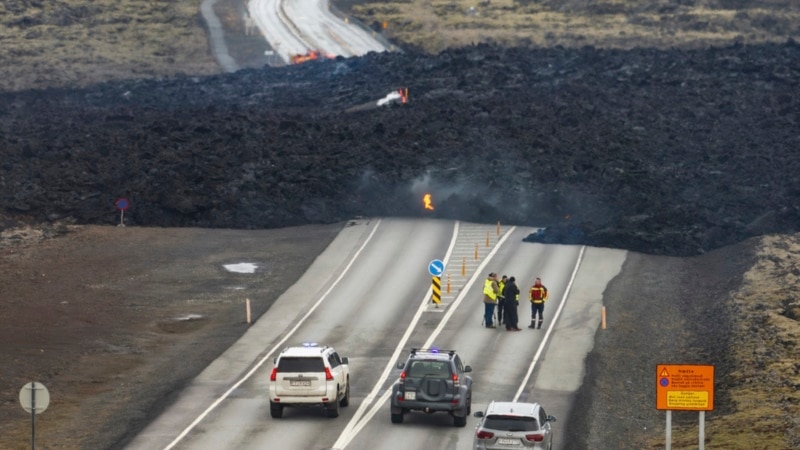A volcano in Iceland’s Reykjanes Peninsula continued to spew lava on Monday, three days after its initial eruption. Authorities say the local infrastructure remains mainly intact.
This is the fourth and strongest eruption since December 2023, forcing Iceland to declare a state of emergency.
Towns near the volcano, like the fishing town of Grindavik, were given a 15-minute warning before the eruption. Most of the town’s 4,000 residents were evacuated, as were hundreds of visitors at the Blue Lagoon Resort, a popular tourist attraction.
The resort issued a statement Sunday saying, “Despite these recent events, all our facilities remain in good condition and are surrounded by protective barriers designed to safeguard Blue Lagoon’s vital infrastructure against potential lava flows.”
The fissure that spewed the molten rock was at a similar location and size as the previous eruption, at 2.8 kilometers long. Authorities had warned for weeks of an accumulation of magma since the last eruption in February.
Although lava flowed over one of three roads connecting to Grindavik, infrastructure remained largely unharmed. Barriers were constructed to steer lava away from infrastructure like the Svartsengi Geothermal Power Plant.
Local utility HS Orka said, “The defenses at Grindavik proved their value. They have guided the lava flow in the intended direction,” leaving the power plant unharmed.
The Keflavik Airport in Reykjavik was also unharmed, the airport said, adding that it remained fully operational.
While lava was diverted from critical infrastructure, many experts are concerned that the diverted lava flows could hit seawater and create toxic chlorine fumes, according to BBC News. Others are concerned about the toxic fumes produced from the eruption blowing toward Reykjavik.
The Icelandic Meteorological Office said it is unlikely that lava will make contact with the sea, or that toxic fumes will hit Reykjavik.
The recent eruption marks the seventh on the Reykjanes Peninsula since 2021, after having previously been dormant for 800 years.
Some information in this report came from Reuters.

